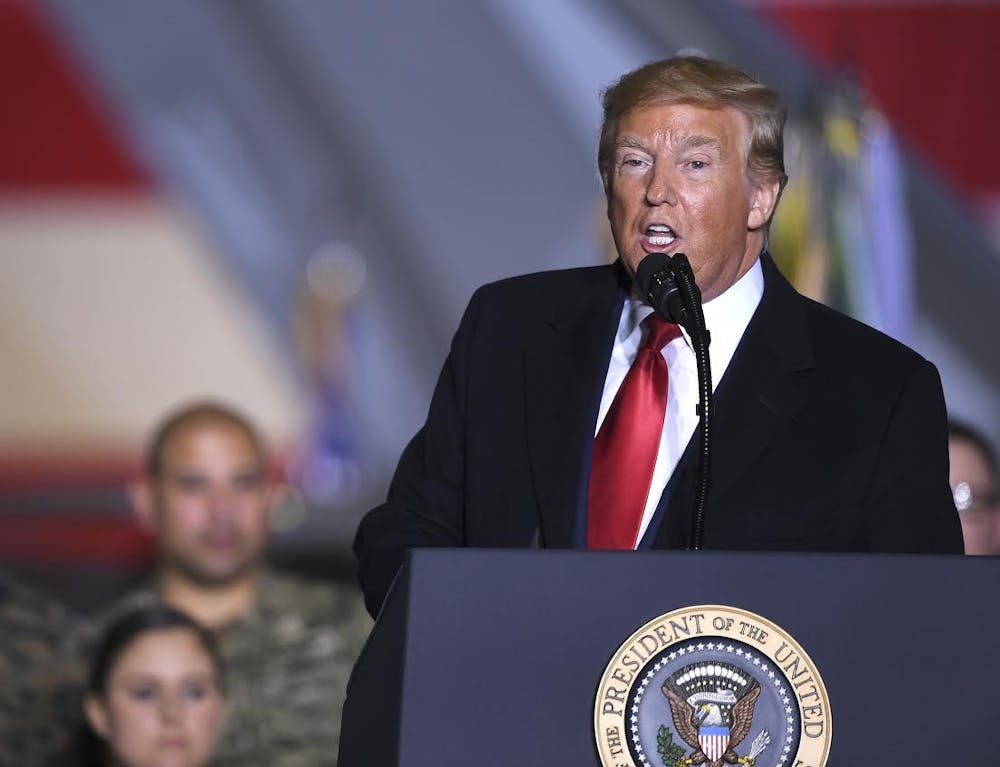“We respect the choice of the American people,” the Chinese Foreign Ministry said on Friday. “We congratulate Mr. Biden and Ms. Harris.” Coming nearly a week after the Biden-Harris ticket won, China was one of the last global superpowers to recognize the incoming administration.
Parting with President Donald Trump’s administration must be, in a certain respect, disappointing to Chinese leaders. Trump has continually given them the opportunity to criticize America. His continued failures have even earned him a popular nickname on Chinese social media: Chuan Jianguo (川建国), or “Build-the-Country Trump.” The sarcasm is palpable. If President Trump has built any country up on the international stage, it has certainly not been his own.
Trump has lived up to his name until the very end, finding new ways every day to tear down the United States’ international presence. At Princeton, international students have felt the damage to U.S. global connections most painfully. The Trump administration has targeted them time and time again. While such attacks have been horribly misguided, they may also serve as a valuable reminder as to why we must cherish and defend our international student body.
“International education … is the responsibility and promise of all nations,” President Lyndon B. Johnson said in 1966. “The knowledge of our citizens is one treasure which only grows when shared.” Indeed, for decades, the United States has shared its educational opportunities with students around the world.
The national benefits have been extraordinary. The US has attracted international students who contribute to the tune of $40 billion a year and has educated nearly 300 former and current world leaders in the process, from monarchs to presidents and prime ministers.
But monetary and political gains matter little to a college student, and rightly so. “Yes, we are international,” writes contributing columnist Won-Jae Chang, “But before that, we are simply students.” They are classmates, they are friends, and they are people, unique as every person is in their own lived experiences and views. By way of human connection, they contribute a diversity of language, culture, and race that is essential in the wake of “America First.”
The Trump administration never recognized these truths. They never understood that the student from the west coast could learn something from the friend who left their home behind after a coup. They never understood that hearing our friends speak about their home countries could make us reexamine or reaffirm the nature of our own. They never understood — as Won-Jae says — that after all this, they still exist, beyond an international label, as people. Instead, the administration attempted to deport them in July. Then, in September, they unveiled policy proposals that would limit student visas from Middle Eastern, Asian, and African countries.
Other countries, such as China, are preparing to fill in the gap. Should the US continue to fall behind in the realm of international education, the Chinese government hopes to make major gains with new plans to “attract foreign talent.” In the end, President Trump’s Chinese nickname resounds. “Build-the-Country Trump” has built other nations up at the expense of the US.

Now, with the results of the presidential election, one hopes that the Biden-Harris administration will reaffirm and strengthen the commitment to international students. Meanwhile, the global community may still take some time to settle on what exactly a Biden-Harris administration will mean for them. In China, Biden has had little press coverage. He has not gotten much of any nickname yet. At the moment, he is usually called Baideng (白等), or “wait in vain.”
Well, we have been waiting and working for change since 2016. For our friends and classmates who found themselves in the government’s crosshairs, we must make sure it was not in vain.
David Palomino is a junior in the politics department from Los Angeles, Calif. He can be reached at davidap@princeton.edu.









